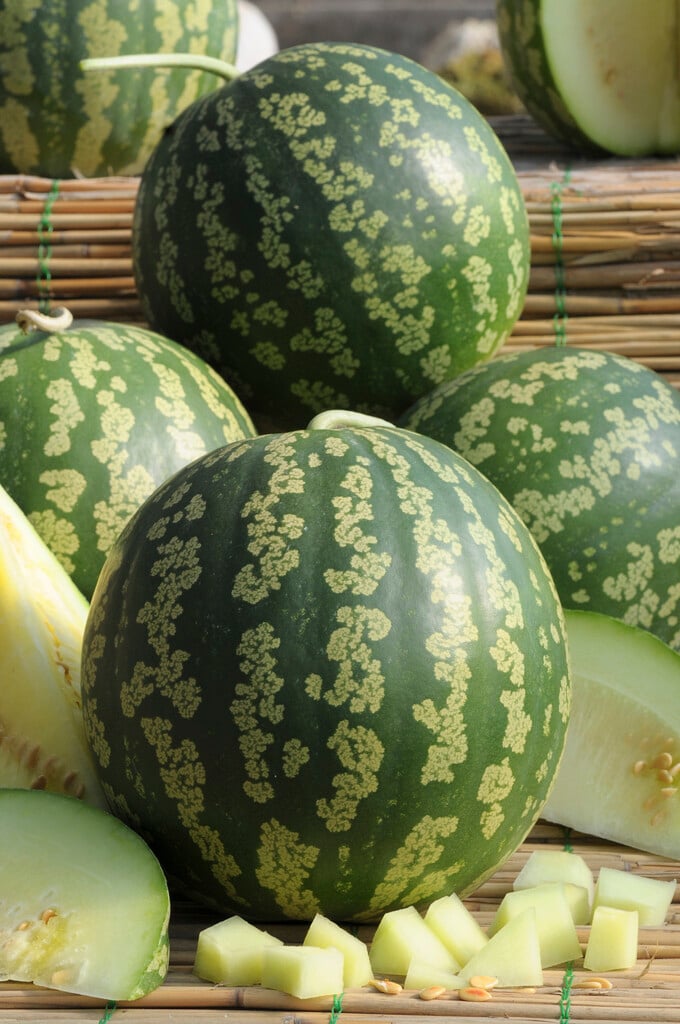Cucumis melo
melon
A wild species of melon from which all other cultivars have been bred. It's a deciduous annual, spreading, twining plant to 1.5 m long, with large, soflty-haired leaves and unbranching tendrils. It produces yellow separate male and female flowers on the same plant, followed by round fruit varying in size. The skin and colour/taste varies depending on variety. The skin can be smooth (honeydew melon), ribbed (Cantaloupe) or netted (muskmelon)
Other common names
apple cucumbercommon cantaloupe
see morecucumber vine
musk melon
sweet-scented melon
Size
Ultimate height
0.1–0.5 metresTime to ultimate height
1 yearUltimate spread
1–1.5 metresGrowing conditions
Moisture
Moist but well–drainedpH
NeutralColour & scent
| Stem | Flower | Foliage | Fruit | |
| Spring | Green | |||
|---|---|---|---|---|
| Summer | Yellow | Green | Green Grey Silver Yellow | |
| Autumn | Green | |||
| Winter |
Position
- Full sun
Aspect
South–facing or East–facing or West–facing
Exposure
Exposed or Sheltered Hardiness
H1BBotanical details
- Family
- Cucurbitaceae
- Native to GB / Ireland
- No
- Foliage
- Deciduous
- Habit
- Trailing, Climbing
- Potentially harmful
- Pets: Bitter fruit can be TOXIC if eaten - see the HTA guide to potentially harmful plants for further information and useful contact numbers
- Genus
Cucumis is a genus of twining plants with tendrils which includes cucumber, melons and gerkins. Around 30 species are native to Africa and 25 to India, Southeast Asia and Australia.
- Name status
Correct
How to grow
Cultivation
Grow in acidic to neutral, moisture retentive, well-drained soil in warm and humid conditions, ideally in greenhouse, large coldframe or polytunnel. Follow melon cultivation for more advice.
Propagation
Propagate by seed. Germinate seeds in heated propagator or warm windowsill in spring.
Suggested planting locations and garden types
- Ground cover
- Edible fruit
- Conservatory and greenhouse
Pruning
Pinch out growing tip to encourage side-shoots. Where these appear, choose the strongest few and remove others. Prune to two leaves where the fruit is developing to direct plant's energy to the fruit, rather than vegetative growth.
Pests
May be susceptible to glasshouse whitefly
Diseases
May be susceptible to Cucumber mosaic virus Powdery mildews may also occur
Get involved
The RHS is the UK’s gardening charity, helping people and plants to grow - nurturing a healthier, happier world, one person and one plant at a time.
